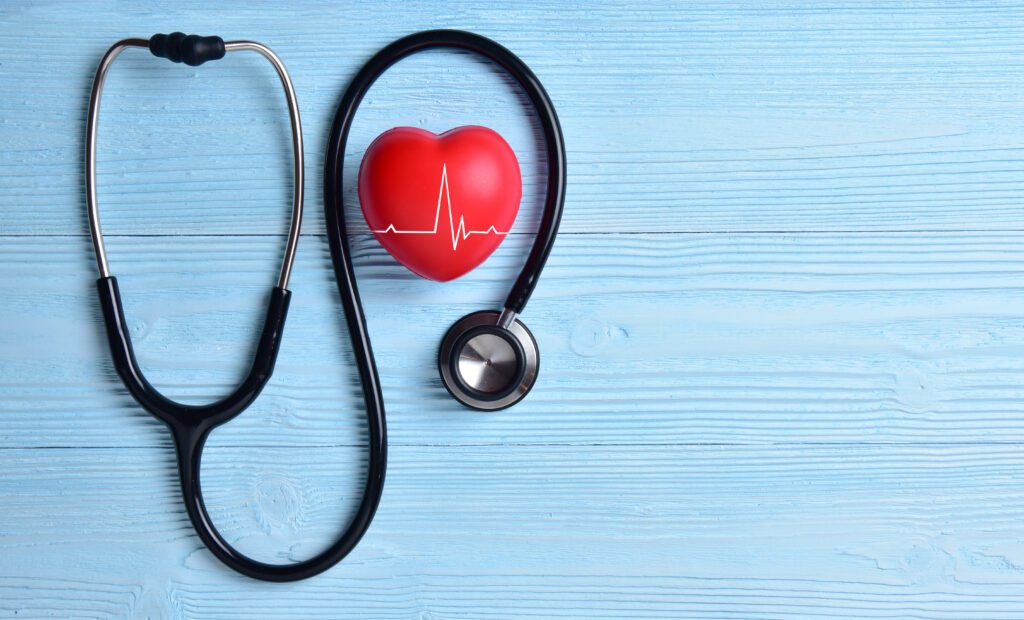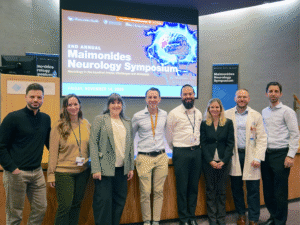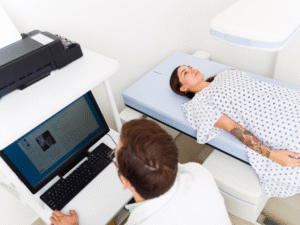In the United States, cardiovascular disease and heart attacks are still serious threats to health. As the leading cause of death, regardless of race, gender, or ethnic group, heart disease kills one in every five Americans. Many heart attacks are silent, meaning the patient doesn’t even realize that a serious health event has occurred.
Recognizing the Signs of a Heart Attack
In order to help someone experiencing a heart attack, it’s imperative to recognize the signs. The most common symptom is chest pain (most often pressure), but others include nausea, vomiting, a sensation of heartburn, sudden fatigue, shortness of breath, dizziness, a cold sweat, or tingling or pain in the jaw, back, neck, or shoulders. Symptoms can vary greatly among patient populations; for example, heart attack signs and symptoms may present differently in women than men, who more often present “classic” signs of cardiac distress.
“Data Is Data”: Maimonides Consistently Tops State and National Cardiac Care Lists
When faced with a heart attack or other serious cardiac health conditions, where a patient receives care can directly affect their survival outcomes. The Maimonides Heart and Vascular Institute regularly receives top ratings for its innovative techniques and successful patient treatment outcomes, making Maimonides a cardiac care leader not only in the city and state, but also in the country.
On the national level, Maimonides was named a High Performing Hospital for Heart Attack and Heart Failure Care (US News & World Report, 2022–2023) and one of America’s Top 50 Best Hospitals for Cardiac Surgery (Healthgrades, 2021–2023). According to the Centers of Medicare & Medicaid (CMS), Maimonides has been a top-rated hospital for heart attack survival since CMS reporting began in 2015, including being ranked among the top 1% of hospitals nationally for the last 5 years in a row.
In New York State, Maimonides has been in the top 1% in patient outcomes for angioplasty and stents, with the lowest mortality rates in the state. According to New York State measures, Maimonides presented as the best hospital for a cardiac stent (in-hospital, 30-day adjusted mortality survival for percutaneous coronary intervention (PCI), 2012-18). For the eighth consecutive reporting period, our interventional cardiologists have been recognized as top performers. This year, Maimonides also received Five-Star Distinctions in Pacemaker Procedures, Defibrillator Procedures, and Valve Surgery (Healthgrades 2023).
“This is not by chance. Why would you go anywhere else for your heart care? Data is data,” said Jacob Shani, MD, the Chair of Cardiology at Maimonides Medical Center. “[Our outcomes] are not by chance.”
For these successes, Dr. Shani credits a dedicated team of talented staff, committed to working hard, never compromising on care, and following guidelines. He also recognizes the team for its availability, affability, and ability to work well together.
Maimonides, At the Forefront of Cardiac Innovation
Maimonides physicians perform around 600 open heart surgeries and cardiac surgical procedures each year—the high patient volume ensures the team is always sharp and ready to perform. It employs experts in all cardiology subspecialties, as well as physicians skilled in cardiothoracic and vascular surgery.
Maimonides offers the most advanced techniques for diagnosing and treating all types of cardiovascular disorders, including A.Fib ablation, angioplasty and stent implantation, aortic aneurysm repair, coronary artery bypass grafting (CABG), end-stage heart failure treatments, miniature pacemakers, minimally invasive valve replacement, heart-lung oxygenation therapy, pediatric heart conditions, and more.
Maintaining cutting-edge technology and equipment and consistently improving the tools available for care teams to achieve successful patient outcomes is also a fundamental part of Maimonides’ cardiac department. Maimonides is the only hospital in Brooklyn with two hybrid operating rooms. Recently, it opened a new Cardiothoracic Intensive Care Unit, providing patients a supportive environment with 14 private beds, in-room bathrooms, a lounge for family and visitors, improved lighting, and advanced equipment and monitors.
Still, what truly sets Maimonides apart from others is the collaborative approach among the many doctors and patient care professionals that make its Heart & Vascular Institute so effective.
“Heart surgery is so successful at Maimonides because we approach it as a team sport,” said Greg Ribakove, MD, Director of Cardiothoracic Surgery and Vice Chair of Surgery. “Cardiologists, cardiac surgeons, and anesthesiologists work together to determine what the best treatment for the patient is. I believe that’s what achieves our excellent outcomes.”




